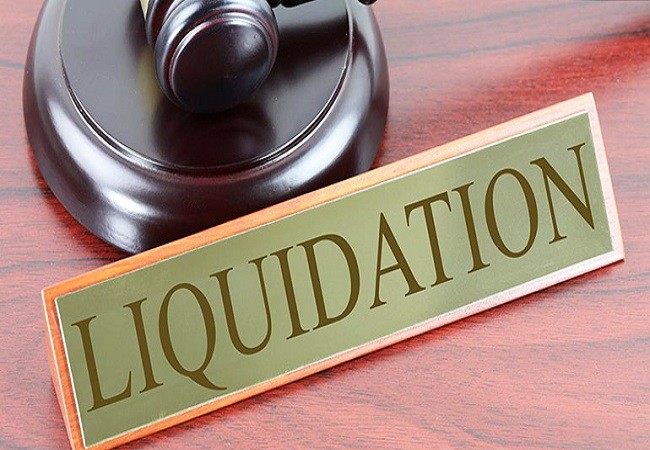Liquidation of a Company

What is the Liquidation of a Company?
The liquidation of a company means winding up or closing the business when it is in a state of insolvency. The painful decision of liquidating a company involves seizing the company’s operations and existence. It’s time to get the final acts done together and dissolve the company in accordance with the laws of the land.
What are the Types of Liquidation?
There are two different types of company liquidation, that a business may adopt. These are:
1. Voluntary Liquidation - In this case, the shareholders of a company will decide to wind up the company as they have no money to pay creditors. In this type of liquidation, priority is given to the creditors at the time of distributing the proceeds from the assets.
2. Compulsory Liquidation – It is a type of company liquidation that is put forward by a court order. Here, the assets of the company are distributed to the creditors and contributors based on the priority of claims.
Reasons For Liquidation
There can be a variety of reasons to make a company go through the process of liquidation. They may be one of the below-listed cases;
● When the company’s total debts and liabilities go beyond the total value of assets.
● When the company has become insolvent.
● When the company has not been able to conduct any trading activities for a year after the date of incorporation.
● When the company has not been registered either as a public or private entity.
● When the company faces continuous losses from business operations.
What are the Roles of a Liquidator?
The roles of a liquidator who is appointed for liquidation by the company include;
✔ Assessing all the assets and liabilities of the company.
✔ Should be responsible for all the assessments for the claims made.
✔ Should be responsible for the distribution of the leftover profit after selling off the assets of the company.
✔ Should provide information to the creditors of the company from time to time.
✔ Should oversee the collection and distribution of the company assets.
✔ Should prepare the statement of affairs and the final liquidator's report.
Since a liquidator is a chief decision-maker in a liquidation process, he has various duties to perform.
What are the Documents Required for Company Liquidation in Dubai, UAE?
Documents required for the Liquidation of a Company in the UAE are;
✔ License Copy.
✔ Memorandum of Association Copy with all the changes
✔ Power of Attorney if any
✔ Shareholders Resolution
✔ Shareholders passport Copy
✔ Emirates ID Copy
✔ Deregistration Application Form
What is the normal notice period for liquidation?
The liquidation period depends on the licensing authorities.
⮚ For mainland companies, it is normally 45 days.
⮚ For some free zones, it is 15/21 days.
⮚ There is a 45-day notice required for certain free zones like Dubai Creative Clusters Authority, etc.
Is it mandatory to publish the liquidation notice?
Yes, it is mandatory to publish the liquidation notice in any 2 newspapers (one in Arabic and the other in English).
How long does it take to liquidate a company in Dubai, UAE?
Including the notice period, it may take 60-90 days to liquidate a company in Dubai.
Does a company need to cancel all company visas during liquidation?
Yes, a company must cancel all visas and get a clearance letter from the Immigration Department to complete the liquidation process. The company has to pay end-of-service benefits and other statutory dues, such as unpaid leave salary, air ticket, and unpaid salary, etc. to the employees.
Conclusion
Liquidation rules have some significant penalties for Company owners and top-level management. So, it is important to properly end the company operations. When a business shows signs of insolvency, it is recommended to conduct an internal audit.
This can help to find out the reasons behind a company’s low performance. Internal auditors would dive deep into your company’s operations and identify areas that need improvement.
Liquidation is the legal procedure by which the company comes to an end. Thus, a company being a creation of law cannot die a natural death. A company, when found necessary, can be liquidated.
Getting advice from professional liquidators in Dubai is the best way to ensure that your company's liquidation is handled efficiently. Our team of experts can help you with company liquidation services in Dubai.

